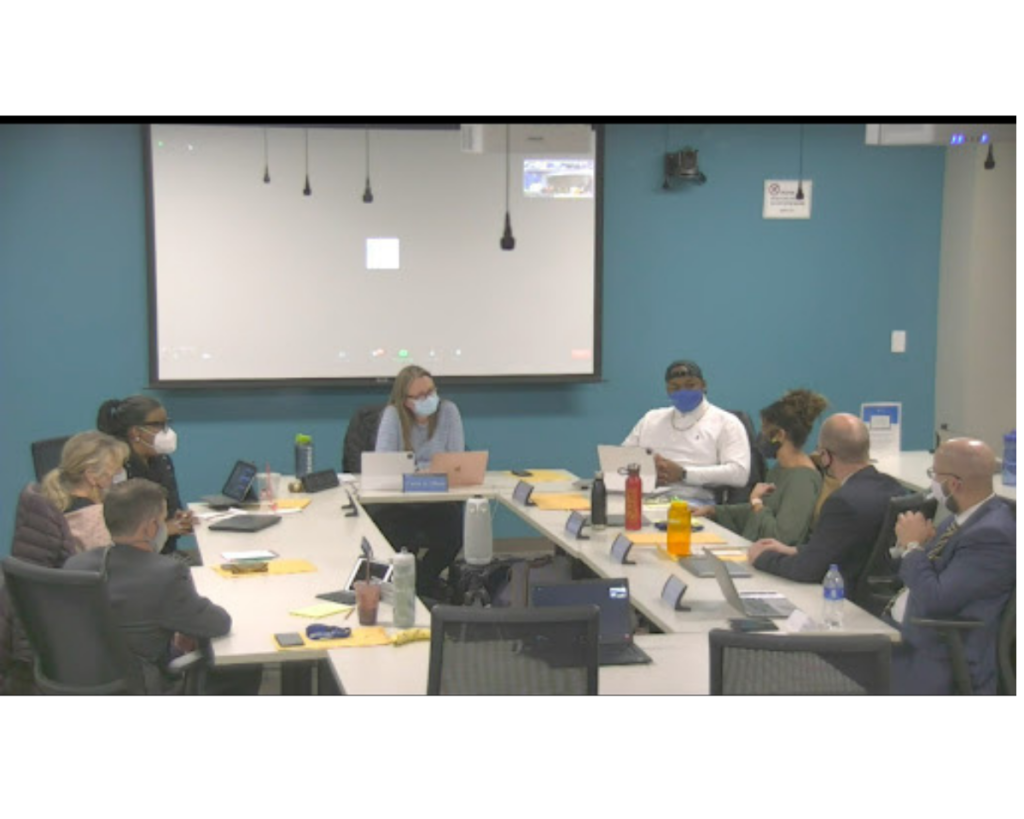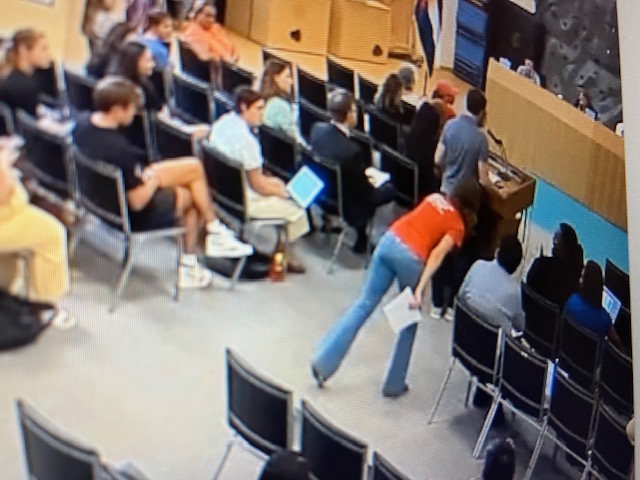Members of the Denver Public Schools board voted 5-2 on Thursday to compensate new and re-elected board members for their time and service.
Beginning in January, the three newly elected and one re-elected board members can receive up to $150 per day for up to five days per month out of the district’s budget — or a maximum of $750.
Board member Tay Anderson had been calling for compensation for months, ever since a state law passed in the spring allowing school districts to pay board members, citing the volunteer nature of the job as a “roadblock” for people with low incomes.
Denver is just the second school district to pay its board members since the law passed. The small Sheridan district in the metro area voted earlier this fall to pay its members $150 per day as well.
Another reason Anderson said he wants to see more “accessibility” to both the school board and to payment is because DPS student demographics are not reflected on the board. He said he knows several Black and Brown residents who wanted to run for a position on the board but did not have the financial ability.
“I remember a conversation I had with a Latinx individual who was going to run for the district for a seat, who was a single guardian,” Anderson said during Thursday’s meeting. “Who told me that because of family reasons, and because of the inaccess to compensation, they would not run for the seat.”
Anderson said in an interview before the vote that if he’d had more control over the amount the district is allowed to pay its board members, it would be higher. The $150 per diem is a compromise, he said, and just the first step.
“I wholeheartedly believe that this is not a livable wage,” Anderson said. “I do plan to work with the new school board to amend the current resolution … to strengthen it.”
Board members Barbara O’Brien and Angela Cobián both expressed reservations about the compensation proposal. Both voted “no” on Thursday after voicing concern about the impact on the district’s budget.
O’Brien said the board has been asked consistently for the past couple of years to improve mental health support for students, and that she worries how the board will be perceived if they decide to pay themselves before taking care of those students’ needs.
“We have huge unmet mental health needs for our students, and we’ve heard—especially from the student board of education—that mental health support is the number one need for high school students,” O’Brien said, “and we’ve heard that consistently for two years.”
In an interview, O’Brien also said the district has “almost eliminated” school bus operations for field trips and after-school programs, and that she’s heard from school employees that they’re not getting timely soap dispenser refills in school restrooms.
“I mean there are just so many operational things. So it only comes to $750 a month per board member … let’s knock off one of those needs,” O’Brien said. “I’d love to do some creative thinking about what we could do with that money instead.”
Cobián, who serves as the board’s outgoing treasurer, said she could not “in good faith” vote yes on the compensation policy given what she’d learned earlier this week in the district budget advisory committee meeting.
“Our (spending) went over the financial outlook for the district over the next five years, showing the fact that not only do we have a decline in the number of students, but we also are increasing our spending,” Cobián said.
“While passing this policy seems like it’s a grain of sand in comparison to the billion-dollar budget that we have … if you vote yes for this you’re knowingly increasing the structural debt that the district is taking on.”
DPS Chief Operating Officer Jim Carpenter said the policy would cost the district $50,000 next year and up to $90,000 in following years.
With one exception, the board members who voted yes on the resolution will not be eligible for compensation themselves come January, though, unless they get re-elected in 2023. Newly elected board members (Scott Esserman, at-large; Michelle Quattlebaum, Northeast Denver; Xochitl “Sochi” Gaytan, Southwest Denver) will be able to receive payment.
Board president Carrie Olson, who was re-elected this month, is also eligible for the stipend. Olson initially said she would abstain from the vote but then voted yes on Thursday.
Anderson also acknowledged that the fast-track process through which the resolution passed was not ideal, but said he believes the budget impact is minimal and will do more good than harm for those looking to get more involved in public education.
“It’s not even half a percent of the annual budget,” Anderson said. He added that he agrees mental health support and special education needs are a high priority.
“I believe we can walk and chew gum at the same time and fund all of those programs,” he said.




